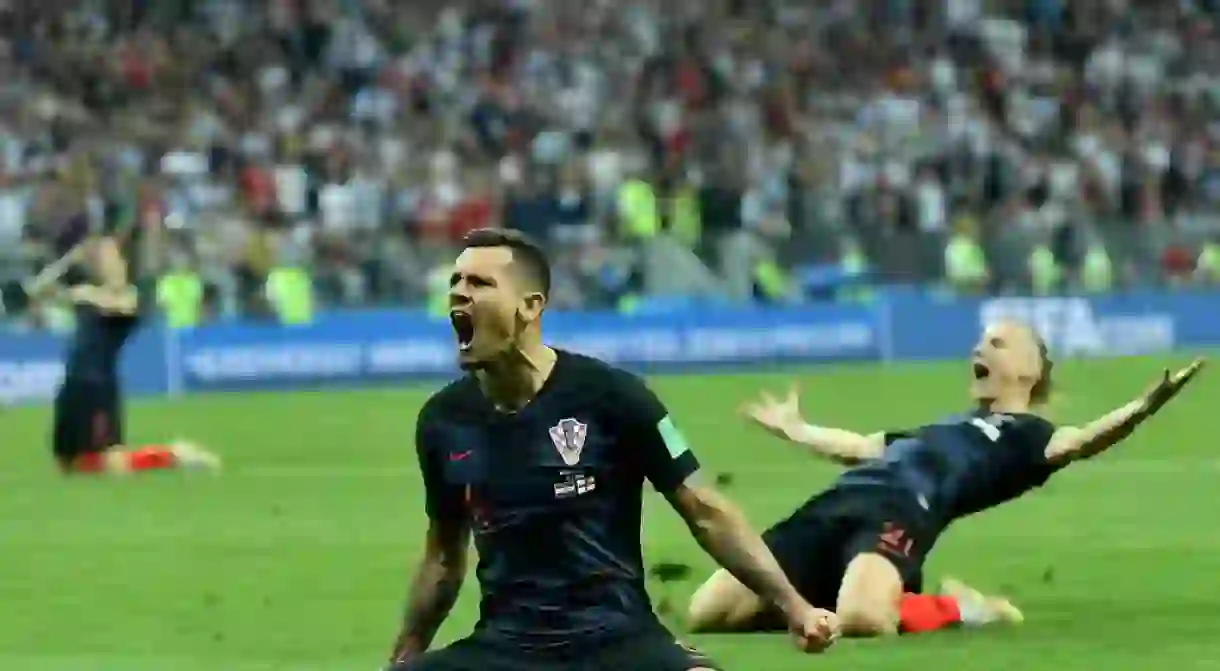What Winning the 2018 FIFA World Cup Would Mean for Croatia

Less than 30 years after winning their independence, Croatia could be World Cup winners. For a generation of players that have finally shaken off previous pressures, it would be no more than they deserve.
In 1992, a French team containing the likes of Eric Cantona, Didier Deschamps and Jean-Pierre Papin failed to get out of a European Championship group that contained England, Sweden and Denmark. The Danes were a late addition – despite going on to win the whole thing – because Yugoslavia were disqualified just 11 days before the start of the tournament.
In a region where ethnic tensions were high, conflict was frequent and over 100,000 people ended up losing their lives, new nation states were fighting for their identity in the late 20th century. Croatia and Slovenia were the first to declare their independence, but they were swiftly met with violent retaliation from a mostly Serb Yugoslav army. Incredibly, people were still trying to play football.
The Yugoslavian team that was disqualified had topped their group and contained a number of players that would form Croatia’s first official football team. Wonderful talents like Davor Šuker, Zvonimir Boban and Robert Prosinečki, who all had Yugoslavia caps to their name, became the stars of a majestic Croatian side that combined grit and fierce determination with guile and panache.
Before swapping the blue of Yugoslavia for the red and white of Croatia, they were professionals doing their job as athletes. Independence meant that a group of very gifted players were now playing for a shirt, badge and nation that they genuinely adored.
When Croatia qualified for Euro ’96, the first tournament they were officially allowed to enter under FIFA and UEFA’s rules, it was a five-year-old country with a little over 4.5 million people living there. They had been at war less than 12 months earlier.
Defender Slaven Bilić could now play for his country, having never been picked for Yugoslavia because his dad was a prominent Croatian separatist. Other players had lost friends and family in the conflict, while striker Petar Krpan had literally fought Serbian troops as a teenage soldier.
The team that reached the quarter-finals at Euro ’96, and then third in the World Cup two years later, became Croatia’s “golden generation”. While the label is lazily thrown at various football teams, Croatian sides of recent years have struggled to replicate the adoration felt for that group of players. They hadn’t gone beyond the quarter-finals at a major tournament since 1998 until this summer’s World Cup.
But something has clicked in Russia and a World Cup final beckons. Becoming world champions would be a win for all the incredible moments in Croatian football’s past that have won over so many fans around the rest of the globe.
It would be for that Davor Šuker gorgeous chip in 1996 and the 3-0 thumping they dished out to Germany at France ’98. For the group of Croat players who won the 1987 World Youth Championship as a Yugoslavia under-20 team and became that “golden generation”.
But history aside, just judging them on this tournament’s performances, they fully deserve their place in the final. They were put in arguably the toughest group, along with Argentina, Iceland and Nigeria. You could have snorted those teams, sneezed them back out and come up with a decent prediction of who’d top the group given the talent on show. The Croats won every game and battered the South Americans in the process.
In their knockout games they’ve come from behind against the hosts and England to send both teams packing, and won two shoot-outs in the process (Russia and Denmark), with Luka Modrić dispatching a penalty minutes after missing one at the end of extra time in the latter.

When in the groove, they’ve been exceptional to watch. Šime Vrsaljko has been the best full-back at the tournament, wingers Ivan Perišić and Ante Rebić have been clinical and energetic down the flanks, and the gorgeous pairing of Modrić and Ivan Rakitić in central midfield continues to provide an elfish grace to the ogre-esque Mario Mandžukić, a target man of the modern age.
France had their moment in ’98, on home soil when the “black, blanc et beur” side came of age. They even beat Croatia en route. Now, a country younger than the goalkeeper that they are about to face, has a chance to truly make history. As captain, Modrić will lead his side out 27 years after he was forced to flee his home, his grandfather was executed and his house burned to the ground. He is no longer a refugee and his country no longer at war, but both could be world champions by the end of week.













